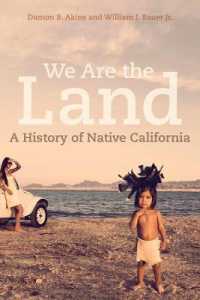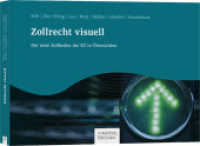- ホーム
- > 洋書
- > 英文書
- > Philosophy
基本説明
A comprehensive intellectual biography of an important and complex philosopher of the Renaissance. Original Italian edition published by Laterza, Rome, 2002.
Full Description
Campanella's new natural philosophy rested on the principle that the books written by men needed to be compared with God's infinite book of nature, allowing them to correct the mistakes scattered throughout the human 'copies' which were always imperfect, partial and liable to revisions.








